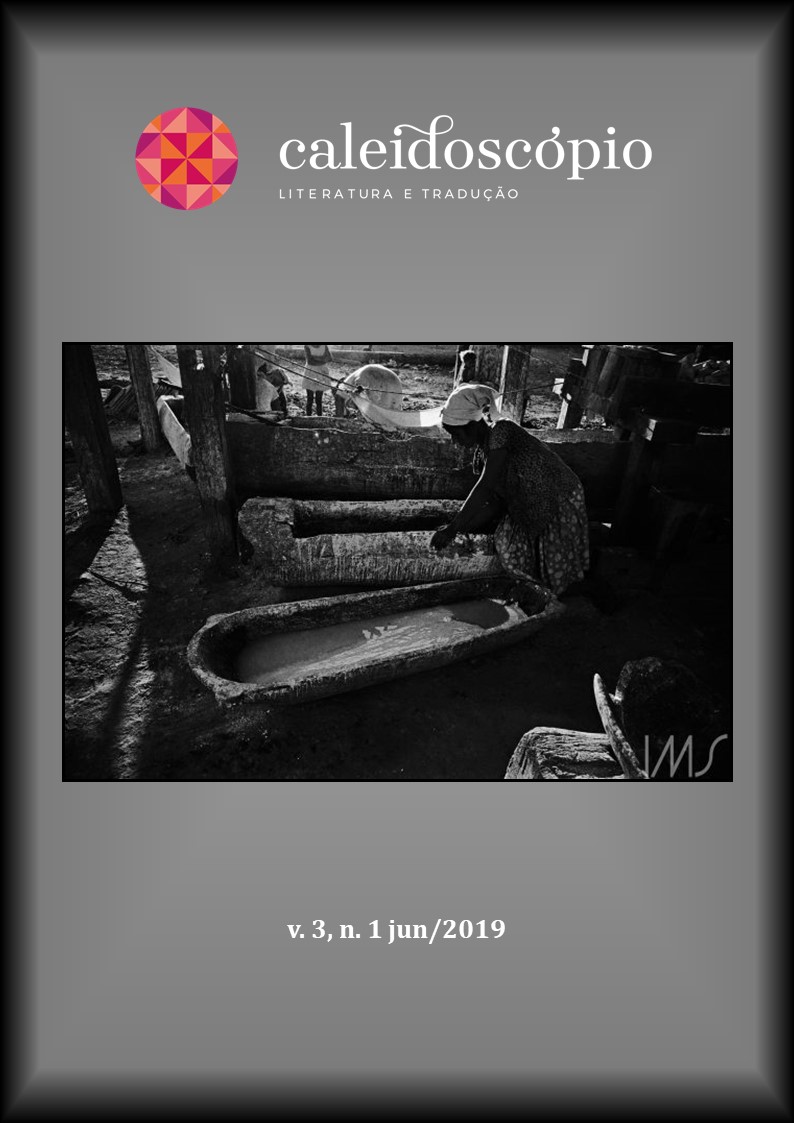Language of the Skin
Ethnographic translation of an immigration story
DOI:
https://doi.org/10.26512/caleidoscopio.v3i1.10835Keywords:
Tradução Etnográfica. Alteridade. Imigração. Relato.Abstract
This article aims at establishing forms of contact between ethnography and translation, as well as at proposing an ethnographic translation of the story of an immigrant’s daughter, by her own words. Ethnography is understood as the observation of the other in order to estrange oneself, and is used as a translation method, in which alterity and the concept known as ‘becoming’ are objects of study for the translator. The idea of translation as passage is refuted, so that it is possible to understand translation as language contact. We use François Laplantine’s theory on how the look is built through cultural lens, as well as his proposal of putting himself as an observer (translator) under microscopic lens so as to estrange himself and his identity, with the purpose of reaching alterity through the contact with the other’s identity. In addition, this paper is also based on the works of Henri Meschonnic, by trying to understand the act of translating as an experience based on a po-ethics, where we acknowledge the inseparability between language, literature and historicity. From this perspective, one cannot understand translation but as contact. Finally, we propose to put into practice this theorical analysis about ethnographic translation by translating an account on immigration written by the daughter on an immigrant in the United States, trying not to erase the alterity.
Keywords: Ethnographic translation, alterity, immigration, account.
Downloads
Downloads
Published
How to Cite
Issue
Section
License
Copyright Notice
- Authors retain copyright and grant the journal right of first publication with the work simultaneously licensed under a Creative Commons Attribution License that allows others to share the work with an acknowledgement of the work's authorship and initial publication in this journal.
- Authors are able to enter into separate, additional contractual arrangements for the non-exclusive distribution of the journal's published version of the work (e.g., post it to an institutional repository or publish it in a book), with an acknowledgement of its initial publication in this journal.
- Authors are permitted and encouraged to post their work online (e.g., in institutional repositories or on their website) prior to and during the submission process, as it can lead to productive exchanges, as well as earlier and greater citation of published work (See The Effect of Open Access).




.png)
